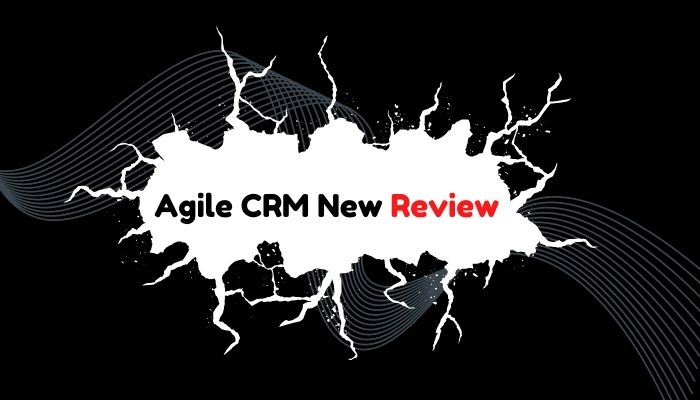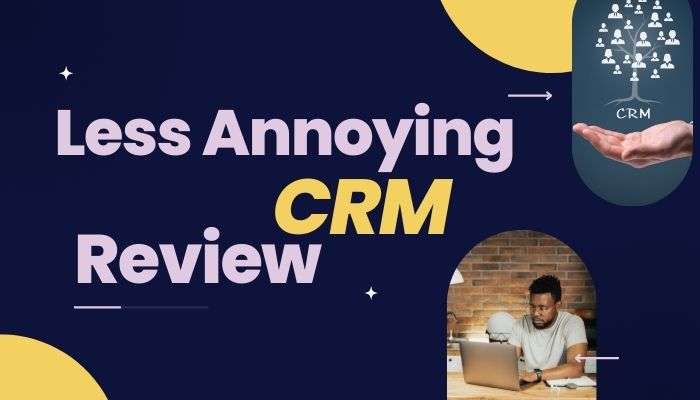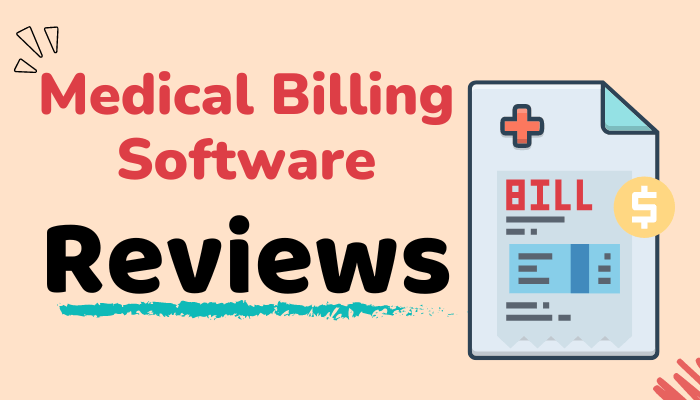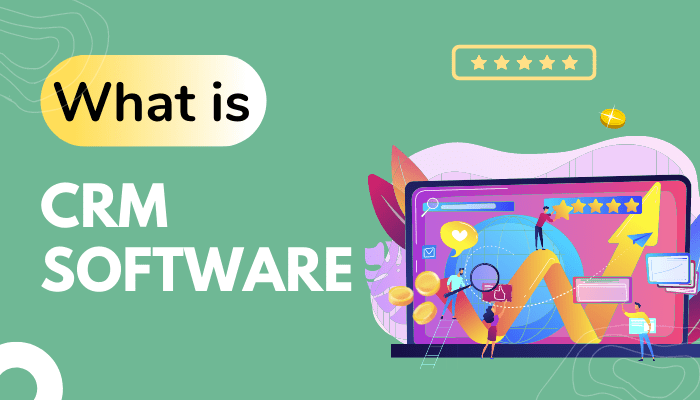19Top Advantages Of CRM-How To Empower Business with CRM Benefits
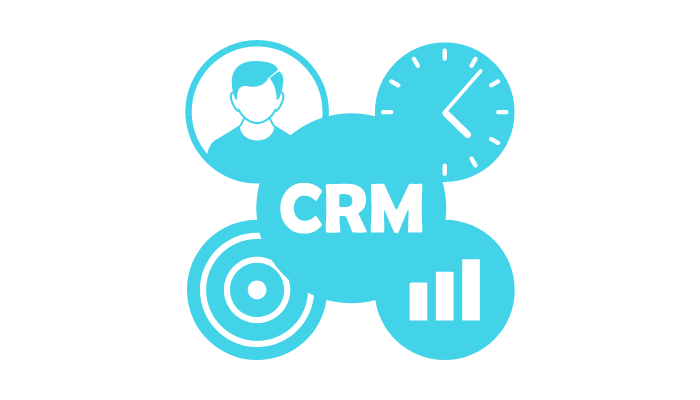
CRM software is a must to use. Is it true?
But what are the advantages of CRM software?
If it can be hard to keep track of all your customers and sales opportunities.
Not having a good CRM system in place can lead to missed sales opportunities and decreased customer retention rates.
CRM software is the perfect solution for businesses that want to increase their sales and keep their customers happy.
CRM software is easy to use and helps you manage contacts, leads, opportunities, and more.
Plus, CRM software integrates with other popular business tools like Google Apps, Salesforce, and more.
What is CRM Software?
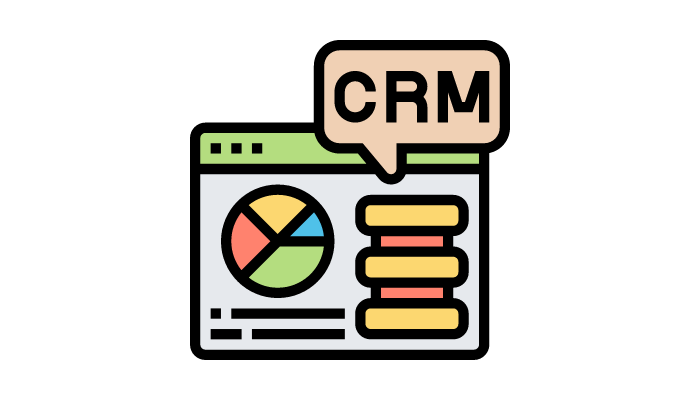
CRM platform is a customer relationship management tool that helps businesses manage customer interactions and higher customer satisfaction.
CRM software can be used to track customer contact information, customer interactions, and customer purchase history.
Additionally, CRM software can be used to generate custom reports and create customer profiles.
By tracking customer data, businesses can use CRM software to improve satisfaction and build customer relationships.
Additionally, businesses can use CRM software to create targeted marketing campaigns and sales strategies.
Ultimately, CRM software helps businesses improve customer engagement and customer loyalty.
What is the Value of a CRM?
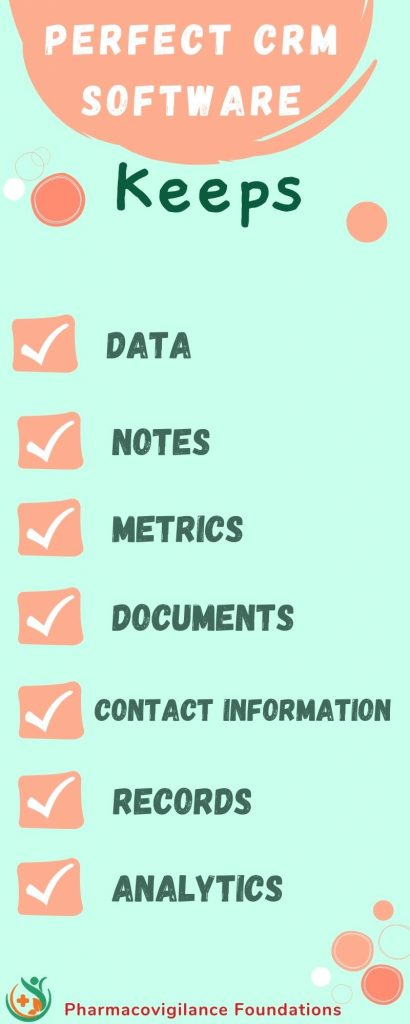
Improving customer service is essential for any business that wants to maintain a competitive edge.
In today’s world, customers have more choices than ever before, and they’re not afraid to switch brands if they’re unhappy with the level of service they receive.
To improve customer service, businesses need to focus on creating a seamless customer experience from start to finish.
That means streamlining the sales cycle and making it easy for customers to contact management if they have any problems or concerns.
It also means making sure that employees are properly trained in customer service protocols. By taking these steps, businesses can improve customer service and keep their customers coming back for more.
Why Must Business Owners use Customer Relationship Management Software?
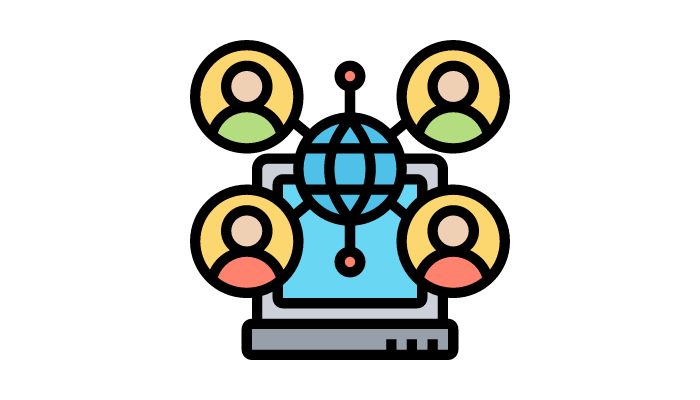
In order to understand why business owners must use customer relationship management software, it is important to understand what sales and marketing processes are.
Sales processes involve a sales team interacting with potential customers in order to generate revenue.
Marketing teams, on the other hand, focus on creating and delivering messages that promote the company’s products or services.
While both sales and marketing processes are important, customer relationship management software is essential for sales teams.
This software helps sales teams keep track of their interactions with potential customers, as well as their sales pipeline.
In addition, customer relationship management software can also help sales teams close more deals by automating some of the sales processes.
As a result, business owners who want to take advantage of the benefits of sales and marketing should invest in customer relationship management software.
Who should use Customer Relationship Management System?

Any business that wants to establish and maintain strong relationships with its customers should use a Customer Relationship Management System (CRM).
A CRM system sales organizations and marketing teams to track customer interactions, identify sales opportunities, and manage customer data.
By using a CRM system, businesses can be sure that they are providing the best possible experience to their customers.
As a result, businesses that use a CRM system are more likely to retain their customers and grow their customer base.
Which Business Areas are deeply affected by CRM Benefits?

1- Customer Retention
2- Customer Satisfaction
3- Sales Revenue
4- Upsales & Cross-sales
What is the Best CRM Software To Handle Customer Data?
Here is a complete list of the Best CRM For Small Business.
[wptb id=3136]The software is designed to help you manage your customer relationships, track customer interactions, and store customer information.
Monday.com’s CRM system is also affordable, making it a great choice for businesses of all sizes. Monday.com’s CRM system is the perfect solution for managing relationships with your customers.
Monday.com’s CRM solution is the best choice for managing your relationships with your customers.
Monday.com’s CRM is easy to use, affordable, and provides all the features you need to manage relationships with your customers effectively.
Monday.com’s CRM is the best choice for business owners such as Healthcare Professionals who wish to improve patient safety by reducing medication errors and improving communication between patients and healthcare professionals.
Check this Comprehensive Review of Project Management Tools Monday
What are the Top Features You Should Look For When Choosing CRM?
1- How it organizes Contact Management
2- How CRM system tracks interactions with customers and team members
3- Scheduling Options
4- Sales pipeline & sales processes Monitoring
5- Sales automation and Sales performance
6- It’s a Central Database and stores customer data as a centralized database
7- Email Marketing
8- Customization according to your business needs
9- How detailed is the reporting and analysis
10- Can CRM integrate with other tools
11- Lead generation options
12- Mobile Application
19 Top Advantages of CRM System
1- Customer Service and Retention
One of the advantages of customer relationship in CRM solution, it is the perfect solution for all your customer needs.
With one contact, you can manage everything from demographics to purchase history and even recorded conversations with previous customers – making sure each interaction between team members in our company benefits them as well!
As the business world becomes increasingly competitive, companies are looking for new ways to deal with customer service professionals One way to do this is through the use of CRM platforms.
Advantages of customer relationship in CRM solution provides a number of advantages for both businesses and customers.
For businesses, it offers a centralized database for customer information, making it easier to track customer interactions and follow up on leads.
It also provides tools for managing relationships with your customers, such as contact management, automated emailing, and reporting.
For customers, CRM provides a seamless experience across all channels, making it easy to get in touch with a company when they need assistance.
In addition, CRM solutions can help businesses to identify and address issues that are causing customer dissatisfaction.
As a result, CRM can play a vital role in enhancing customer service and retention.
2- Increase Sales
One of the advantages of CRM will help you streamline your sales process and automate the most tedious tasks.
It allows for centralized storage of all data of customers, which is accessible by anyone in need or wants to know more about their current state (or potential).
With this capability at hand, it’s easy enough that an employee can follow exact instructions on setting up new customers; ensuring every step along the way has been accounted for!
Sales reps are the lifeblood of any organization. They bring in revenue and keep the sales pipeline full.
In order to be effective, sales reps need to have a good understanding of their customers. They need to know who their best customers are, what they’ve purchased in the past, and what their interests are.
That’s where CRM comes in. CRM provides sales reps with automated sales reports.
These sales reports allow sales reps to see who their best customers are, what they’ve purchased in the past, and what their interests are.
This information is essential for sales reps to be effective. With CRM, sales reps can easily track their customer interactions and generate sales reports that help them understand their customers better.
As a result, CRM enhances sales by providing sales reps with the information they need to be successful.
3- Detailed Analytics
One of the advantages of CRM is Customer analytics which is the key to understanding your customers.
But, without clear guidelines on what they mean and how best to use them for optimization purposes-you may be missing out!
CRM systems will have built-in analytical tools that provide reporting features and make it easy.
Just choose from click-through rates (CTR), bounce rate, or demographic data–these metrics show the success of the campaign while highlighting opportunities with further tweaks required.
Data is the lifeblood of any organization. It allows businesses to make informed decisions about their products, their marketing, and their sales.
But data is only valuable if it can be analyzed. That’s where CRM comes in. CRM provides businesses with detailed analytics about their customers.
4- Productivity Increased & Marketing Automation
One of the advantages of CRM is Marketing automation tools, which are a must-have for any business that wants to grow.
The best part is you can use the CRM platform with this marketing automation, which will free up your employees so they don’t have to do menial tasks anymore and focus on human-centered work where customer relationships matter most!
With dashboards provide insights into every area of the company’s workflow from order intake all way through payment processing.
A CRM system benefits productivity in a sales organization by providing a complete view of the customer and automating tasks.
By having all customer information in one place, sales reps can quickly find the information they need and move on to the next task.
Additionally, automation features can help to streamline repetitive tasks, freeing up time for sales reps to focus on more important tasks.
Finally, a CRM can help to keep sales reps organized and on track by providing reminders and alerts for upcoming tasks.
By making it easier for sales reps to stay organized and focused, a CRM can boost productivity in a sales organization.
5- Enirche New Leads
The benefits of CRM is a key to building customer relationships. By being able not only to see what your customers are doing.
But also have access to your employees and track every interaction with them along the way it will make sure that no one falls through the cracks when nurturing those valuable business connections!
In order to build deep, lasting relationships with your customers and with new leads, it is important to have a clear understanding of customer behavior.
Fortunately, the CRM platform provides valuable insights that can help businesses to develop a more accurate understanding of their customers.
By tracking data such as customer interactions, purchase history, and demographic information, businesses can gain a better understanding of what customers want and need.
Additionally, CRM provides a number of key benefits that can help businesses to deepen their connection with new leads.
For example, CRM can help businesses to automate repetitive tasks, freeing up time for employees to focus on building relationships with customers.
Additionally, CRM can help businesses to manage the data of customers more effectively, making it easier to segment leads and target them with personalized communications.
As a result, CRM can be a powerful tool for enhancing the deep connections with new leads.
6- Profitability Exploding
The benefits of CRM are a sales management platform that helps the sales team keep track of their sales pipeline, performance metrics, and customer relations.
By centralizing task management and sales data in one place, CRM software makes it easier for sales teams to close deals and improve their profitability.
In addition, CRM software can help sales teams build better relationships with their customers by providing a centralized location for communication and customer service.
By using CRM software, sales teams can improve their productivity and profitability.
7- Task Tracking
One of the benefits of a CRM, is that CRM Solutions provide centralized task management in the CRM software’s dashboard.
The benefits of the CRM platform have become an essential tool for businesses of all types and sizes.
One of the key benefits of CRM is its ability to centralize task management.
By consolidating all tasks into one system, businesses can streamline their operations and ensure that nothing falls through the cracks.
Additionally, CRM often comes with a range of built-in features that can further enhance task tracking.
For example, many CRM systems allow users to set up reminders and create escalation procedures to ensure that tasks are completed in a timely manner.
By leveraging the benefits of CRM software, businesses can optimize their task tracking procedures and improve their overall efficiency.
8- Customized Individual Communication
The Major benefit of the CRM platform is its ability to enhance customized individual communication.
By understanding customer behavior, companies can send communications that are relevant to each individual.
As a result, customers are more likely to engage with the company, and existing customers are more likely to remain loyal. In addition, CRM can help companies to better understand their customers’ needs and preferences.
This understanding can then be used to tailor communications and products to meet those needs. As a result, CRM provides a major advantage for companies seeking to improve their customer relationships.
9- Planned Retention
The benefits of CRM are in current times by CRM implementation, its customer relationships in an efficient manner for long term to keep consistent customer experience with their products.
After all, existing customers are the backbone of any business – they are the ones who generate revenue and contribute to the growth of the company.
This is where CRM software comes in handy. CRM (customer relationship management) software is a tool that helps businesses manage their relationships in an effective and efficient manner.
Some of the advantages of using CRM include increased customer satisfaction, improved customer retention, and increased sales.
In other words, CRM gives businesses a competitive edge by helping them to better manage their relationships. As such, it is no wonder that CRM is becoming increasingly popular among businesses of all sizes.
10- Data Entry Auditing
The benefits of CRM as customer relationship management software is a system that enhances Data Entry Auditing by tracking customer sentiment and engagement with a company.
This valuable customer information is then used to improve customer relationships.
A CRM system helps a company identify customer needs and track customer communications.
It can also automate customer service tasks such as handling customer inquiries, creating customer profiles, and generating reports.
In addition, a CRM can help to improve sales productivity by managing customer information and sales opportunities.
A CRM system enhances data entry auditing by providing a complete view of customer interactions and engagement.
This information can be used to improve customer relationships, reduce churn, and increase sales.
11- Better segmentation
The benefits of the CRM platform has the ability to enhance segmentation by allowing businesses to obtain a deeper understanding of their customers.
By tracking customer interactions and collecting data on customer journeys, businesses can identify new customers and tailor their marketing and sales strategies to better meet their needs.
In addition, CRM software can automate some of the business processes, such as lead generation and follow-up, making it easier for businesses to effectively manage their relationships with customers.
As a result, CRM platforms provide businesses with the tools they need to improve customer segmentation and deliver a more personalized experience.
12- Know What to Expect
Salespeople can feel more confident when they know what to expect.
This is because the same applies in business, where it’s easier for them to cross-sell or up-sell customers by having access to customer interaction history throughout their journey with you to identify key trends of customer purchase!
And since one benefit that comes from using CRM technology would be helping sales representatives do a better job at selling faster.
This gives us an opportunity to anticipate needs before those individuals even ask – which means less wasted time on unproductive conversations.
13- Data Privacy Protection
Any business that collects data from prospective and current customers needs to have a plan for data privacy protection.
This is not only a best practice for ethical reasons, but it is also required by many laws and regulations.
One way to enhance data privacy protection is to use a CRM platform.
This type of software helps businesses to track and manage the data of customers in a secure way.
In addition, the CRM platform can help businesses to better understand their customers, which can lead to better customer retention. As a result, using CRM software can be an effective way to enhance data privacy protection.
14- Help in Cross-sales
The benefits of CRM solutions offer to know your customers well, you can sell to them affordably and with ease.
CRM software that tracks their purchasing behavior as they move through the stages of life cycle purchases.
This is possible because it provides detailed information on what products have been bought before so when new ones come along there won’t be any annoying suggestions related just to save time by using data-driven cross-selling strategies.
15- Enhance team collaboration
Collaborative CRM tools can help you and your team collaborate on strategy, as well as deliver best practice results throughout the company in all customer-facing interactions.
16- Cost-effective
The benefits of CRM are becoming more affordable as the technology continues to evolve.
Cloud-based SaaS platforms and increasing competition have driven down costs, while “Uberization” trends eliminate a lot of what you would need in-house for your company.
Thanks to AI or machine learning algorithms that can do most if not all work done by human beings with just one tap on their phones!
17- Organized Administrative Tasks
Benefits of CRM, you can finally get back some of that time spent on menial tasks.
Instead of entering data manually from different sources and then searching for the corresponding emails in your jumbled Gmail inbox or recording contact information.
Over again just to import it into a company database – all this tedious work will be automated!
With an easy-to-use interface designed specifically with small businesses in mind.
There is no longer any need for hours’ worth (or days!) worth repetitively checking irrelevant information when what we want isn’t even listed anywhere else but right here waiting patiently behind screens.
18- Multiple Access Platforms
With Cloud-based sales software, you can access your in-depth information from any device. This allows for more efficiency when interacting with customers and completing tasks that are required of an entrepreneur’s job description.
C Corps have been traditionally seen as being very enterprise-focused but there is no reason why this couldn’t be extended into other aspects.
Such as marketing or even human resources if the business wished to do so – providing greater flexibility than ever before while still maintaining core values like great customer service!
19- Provides different types of CRM?
The perfect CRM that provides most of the CRM platform features such as
FAQs
What are the Disadvantages of CRM?
CRM, or customer relationship management, is a system designed to help businesses manage their customer data.
However, CRM can also have some negative consequences. One of the most common problems with CRM is that it can create silos within an organization.
When data is siloed, it can be difficult for employees to access the information they need. This can lead to frustration and inefficiency.
Additionally, CRM technology can be expensive to implement and maintain. They require specialized hardware and software, and they often need to be customized to fit the specific needs of a business.
As a result, businesses may need to invest significant time and resources into setting up and maintaining a CRM.
Finally, CRM can be complex and difficult to use. If employees are not properly trained on how to use the system, they may find it difficult to navigate or may make errors that could impact customers.
For these reasons, it is important for businesses to carefully consider whether a CRM is right for them before making any decisions.
What are the different types of CRM?
- Collaborative CRM systems
- Operational CRM systems
- Analytical CRM systems
Can CRM Tool Fail?
CRM Tool is often lauded as a panacea for businesses struggling to keep track of customer data.
By organizing information and automating tasks, CRM can save businesses valuable time and resources. However, CRM is not without its flaws.
One of the most common complaints is that it can be difficult to use. The learning curve can be steep, and even experienced users may find themselves frustrated by complex menus and features.
In addition, CRM is only as effective as the data that is entered into it. If information is inaccurate or incomplete, the software will not be able to provide accurate insights.
As a result, businesses must be careful to ensure that their CRM data is clean and up-to-date. Without these precautions, CRM can quickly become a liability rather than an asset.
Finally
CRM software is essential for business growth and not software is perfect, when choosing the right one for you, just figure out first your business and team needs then your budget for long-term attachment.
You can try

